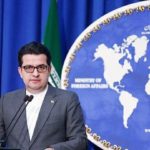President Donald Trump said on Saturday he is considering a pardon for Edward Snowden, the former U.S. National Security Agency contractor – now living in Russia – whose spectacular leaks shook the U.S. intelligence community in 2013.
The Republican president’s comments followed an interview Trump gave to the New York Post this week in which he said of Snowden that “there are a lot of people that think that he is not being treated fairly” by U.S. law enforcement.
U.S. authorities for years have wanted Snowden returned to the United States to face a criminal trial on espionage charges brought in 2013.
Snowden fled the United States and was given asylum in Russia after he leaked a trove of secret files in 2013 to news organizations that revealed vast domestic and international surveillance operations carried out by the NSA.
Trump’s softening stance toward Snowden represents a sharp reversal. Shortly after the leaks, Trump expressed hostility toward Snowden, calling him “a spy who should be executed.”
“I’m going to start looking at it,” Trump told reporters about a possible pardon, speaking at a news conference at his Bedminster, New Jersey golf club.
Trump said he thinks Americans on both the political left and the right are divided on Snowden.
“It seems to be a split decision,” Trump told reporters. “Many people think he should be somehow treated differently. And other people think he did very bad things.”
Some civil libertarians have praised Snowden for revealing the extraordinary scope of America’s digital espionage operations including domestic spying programs that senior U.S. officials had publicly insisted did not exist.
But such a move would horrify many in the U.S. intelligence community, some of whose most important secrets were exposed. Trump has harshly criticized past leaders of the U.S. intelligence community and FBI, and on Thursday took aim at the bureau’s current director Christopher Wray, his own appointee.
The U.S. Justice Department filed a lawsuit last September against Snowden, arguing that his recently published memoir, “Permanent Record,” violated non-disclosure agreements.











